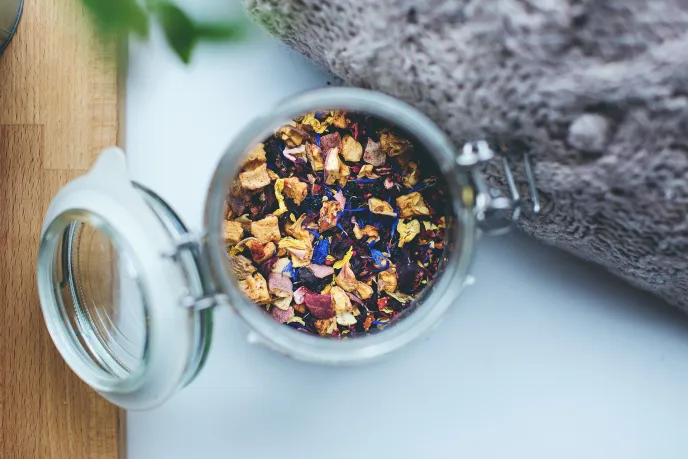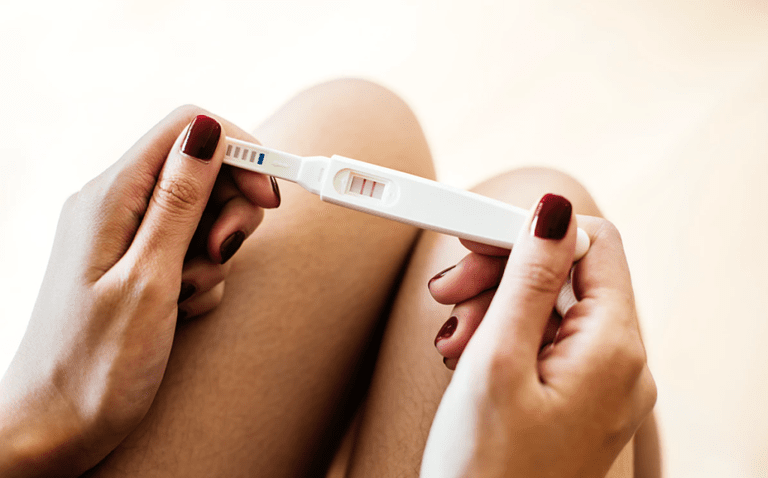Are you one of the 15% of Australians diagnosed with Irritable Bowel Syndrome (IBS)? It affects twice as many women compared to men, and tends to be associated with other chronic conditions such as endometriosis, more on that here.
IBS is characterised by symptoms of abdominal pain, bloating, diarrhoea and/or constipation and excess wind.
Whilst we know that the low FODMAP diet has been well-researched by Monash University to help improve the symptoms of IBS. It is in fact, “second-line therapy”, which means there are some strategies that are less difficult that you can tackle before you move onto a dietitian-supervised low FODMAP diet.
So, in honour of IBS Awareness Month, this April, I am diving into my top tips!
Let’s get into it!
1. Ditch the straw
Did you know that you are likely to be drawing in excess air when drinking from a straw that can increase the amount of gas trapped in your bowel?
I mean, it makes logical sense, right?

If you’re a big straw user on your tea, coffee or drinks. See what happens when you ditch the straw (and preferably the fizzy drinks too) for a bit and see if that makes a difference.
An obvious place to start may be your water bottle!
2. Avoid chewing gum and other mints
Whilst this does have something to do with FODMAPs, it is one of the first questions I ask women struggling with symptoms of IBS.
Most sugar-free gums and mints contain forms of sorbitol, a sugar alcohol, that for many can create excess gas and in high amounts may even have a laxative effect.

You may also find sugar alcohols in some diet, low-carb or sugar-free products too. Check your label for “ols” like xylitol and try avoiding these for a while and see how your symptoms go.
3. Chew your food well!
Another seemingly obvious one, but in modern day society we are wolfing down our food at the speed of light in front of our laptop or phone and are barely chewing so we can move onto the next task!
Slowing down, sitting down at a table away from screens and actually chewing your food well and taking time between bites can help alleviate some of the symptoms of IBS that you may be experiencing like bloating.

I find people that work in certain professions like hairdressers or mobile therapists tend to struggle with this the most! Carving out just 15 minutes to sit and eat can totally transform your day and your gut symptoms too.
4. Diaphragmatic breathing & mindfulness
Our gut and brain are inextricably connected via the gut-brain axis, so if your mind is uneasy, anxious or you’re experiencing symptoms of anxiety or depression – this can impact your bowel motions and sensations of pain.
Learn more about the gut-hormone axis here.
Have a think, do you notice gut symptoms worsening on weekdays or during stressful work periods compared to the weekends? Do you notice improvements in your bowel symptoms on holidays and vacation despite eating whatever you want (even suspected trigger foods)?
Diaphragmatic breathing and mindfulness can be effective strategies to help calm down the vagus nerve that connects the brain to the nerve endings in the gut.

You can also try gut-directed yoga poses which has been shown to be just as effective as the low FODMAP diet in improving the symptoms of IBS! (Schumann et al., 2018).
Learn how to diaphragmatic breathe here, downloading apps like Calm and Headspace also really helps many women I work with improve their gut symptoms and their sleep too!
5. Fat, fluid, fibre, alcohol & caffeine
Of course, there are some dietary components to think about when it comes to managing IBS better that are not at all related to FODMAPs, these include:
- Fat
- Dietary fibre
- Fluids
- Alcohol consumption
- Caffeine consumption
Diets very high in fat can be an irritant to the gut stimulating more frequent bowel motions (i.e. diarrhoea).
Not enough fibre, especially insoluble fibre, can contribute to constipation, a common presentation of IBS.
Not getting enough water in your day can also contribute to constipation, shoot for at least 2 L/day and more during hot weather or heavy exericse (these needs vary person to person).
Alcohol can be an irritant for many, so take a look back and see if your symptoms are worse after Friday night drinks and a big weekend.
Caffeine can be helpful for those who are constipated to help get their bowels over the line to actually “go” but for those on the looser end of the spectrum, one cup of coffee or strongly brewed black tea can leave you running for the loo every 5 minutes!
Why not trade coffee for some peppermint tea? It can help calm some of these painful symptoms of bloating and gas (ScienceDaily, 2011).
Struggling with managing your symptoms of IBS? Stuck with working out how to manage these symptoms alongside another health or medical condition? Book in for a consultation with one of our dietitians here at The Dietologist to get to the bottom of your symptoms!







